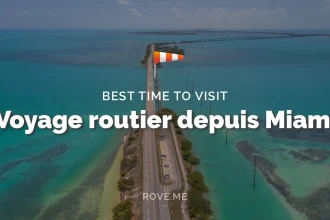Google has just bought Frommer’s, a very well-known American travel guide, for $25 million, a bit like our Routard guide. The amount of 25 million dollars is not enough to impress, because it is pocket money for Google which has several billion dollars in cash.
This acquisition is part of a more ambitious policy from Google which, in a certain way, wants to become a key player in tourism on the web.
If we go back some time, Google’s strategy appears brighter. The purchase of Frommer’s travel guide is not just a simple paper guide, Frommer’s is also a website on which the tourist can find itinerary suggestions, addresses for shopping or the latest trendy place in most of the world’s major cities. These are all potential advertisers that Google will be able to attract into its net.
But before purchasing this American guide, Google had already purchased ITA Software for $700 million: ITA Software is a technology company that provides airline reservation technologies to heavyweights in the sector, for example, Trip Advisor that all Belgians know. With this purchase Google now also has its own online reservations site. If you add to this that Google also bought Zagat, a gastronomy website very well known to the Anglo-Saxons (it displays the addresses of restaurants, but also the comments of Internet users/travelers and not just gastronomic experts), we can say that the circle is closed
With these travel guides, these gastronomic sites, and these reservation sites, Google is well on its way to competing with online reservation sites like Booking.com or Expedia who are also its customers. The stakes are high, because online tourism advertising represents 3 billion dollars for the year 2012. Google clients like Booking.com could get very angry if Google attacks them head-on and they could sever ties with Google. This is true, but in practice, it will be difficult for them to break their link with Google: remember that sites like Booking.com or Expedia need Google more than the other way around. Logically, Google is not going to stop there – especially since the business that is growing the most on the Net is the business linked to online tourism. Beyond the advertising brought back by advertisers in the sector, Google hopes to become essential and attract advertising, but also commissions on reservations – it is therefore a hell of a business that Google is building.
The increasing use of the Internet on mobile phones will undoubtedly accelerate this movement and definitively kill paper travel guides. But we are not there yet: given the significant roaming costs, most tourists currently deactivate data consumption when they cross the border of their country. In the meantime, travel agencies are suffering torture and are no longer able to make ends meet in the face of competition from the Internet. Ask yourself: when was the last time you visited a travel agency?




